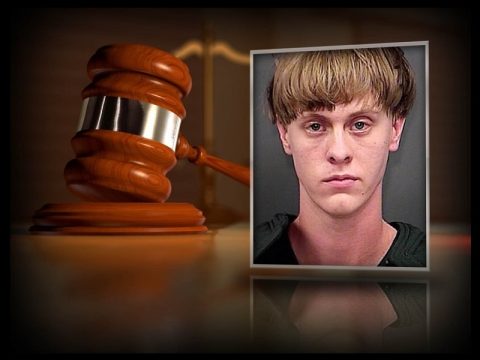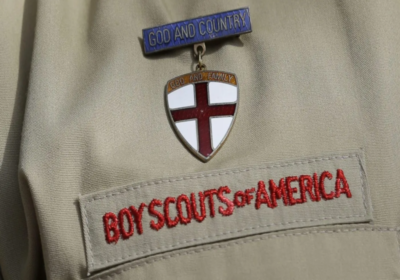ROOF APPEALS DEATH PENALTY IN SOUTH CAROLINA CHURCH MASSACRE
Yesterday, Dylann Roof appealed his federal convictions and death sentence in the 2015 massacre of nine African American church members in South Carolina, arguing that he was mentally ill when he represented himself at his capital trial.
In a 321-page legal brief filed with the 4th U.S. Circuit Court of Appeals in Richmond, Roof’s lawyers ask the court to review 20 issues, including errors they say were made by the judge and prosecutors that “tainted” his sentencing.
One of their main arguments is that U.S. District Judge Richard Gergel should not have allowed Roof to represent himself during the penalty phase of his trial because he was a 22-year-old ninth-grade dropout “who believed his sentence didn’t matter because white nationalists would free him from prison after an impending race war.”
Roof’s appellate lawyers said Roof had been diagnosed with “schizophrenia-spectrum disorder, autism, anxiety, and depression,” but that he “jettisoned” his experienced trial attorneys to stop them from presenting evidence of his mental illness to jurors.
They said his trial attorneys told the judge that in their decades of experience, “none had represented a defendant so disconnected from reality.” Roof, they said, presented no mitigating evidence to the jury.
“Instead, prosecutors told them Roof was a calculated killer with no signs of mental illness. Given no reason to do otherwise, jurors sentenced Roof to death,” his attorneys wrote.
“Roof’s crime was tragic, but this court can have no confidence in the jury’s verdict.”
Roof became the first person to be ordered executed for a federal hate crime when he was sentenced to death for fatally shooting nine African American church members at Emanuel AME Church in Charleston, South Carolina, on June 17, 2015.
Prosecutors said he specifically chose Emanuel AME, the South’s oldest black church, to carry out the massacre. After he was arrested, Roof told FBI agents that he wanted the shootings to bring back segregation or perhaps start a race war.
The jury’s verdict came after a trial in which the avowed white supremacist did not show any remorse or attempt to fight for his life. Roof never explained why he committed the massacre.
Roof’s legal advisers repeatedly expressed frustration that Roof wouldn’t allow them to introduce mental health evidence that could possibly spare his life.
Roof asked jurors to forget anything they’d heard from his legal team about his mental state, declaring, “there’s nothing wrong with me psychologically.”
“I still feel like I had to do it,” Roof said in his closing argument.
Prosecutors told the jury that Roof walked into the church and sat with the Bible study group for about 45 minutes, then opened fire during the final prayer, when everyone’s eyes were closed.
The federal jury convicted Roof of 33 federal charges, including hate crimes. During a separate proceeding in state court, Roof was given nine life sentences in exchange for his guilty plea.
In their legal brief, Roof’s appellate lawyers argue that the “federal trial shouldn’t have happened at all.” They said the state quickly brought capital charges against Roof’s “wholly-intrastate crime,” but months later, federal prosecutors sought their own death sentence. They argue that state officials “viewed the federal prosecution as unnecessary and disruptive.”
“This Court should vacate Roof’s convictions and death sentence,” they wrote.
The massacre prompted South Carolina to remove the Confederate flag from its Statehouse. Roof had posed with the flag in photos.
The slain included the Rev. Clementa Pinckney, the church’s pastor and a state senator; a high school track coach; the church sexton; a librarian; and an aspiring poet.





